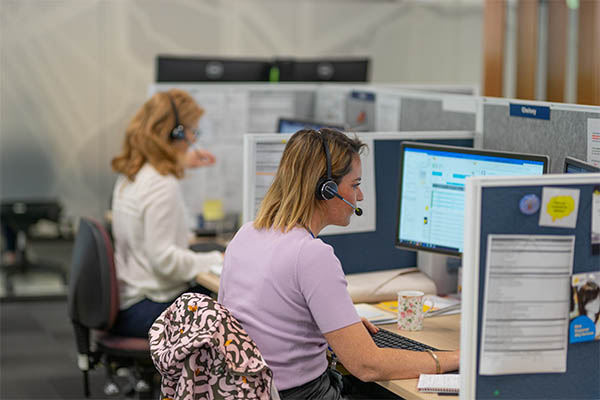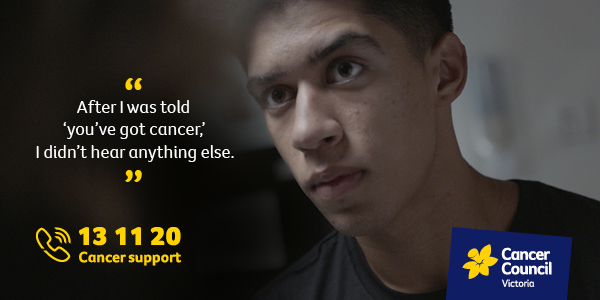A cancer diagnosis is scary, overwhelming, and complex and has an impact on not only an individual’s health but on their entire family’s emotional and financial lives. Getting the right support and advice at the right time can make a big difference.
Unfortunately, research shows approximately 70 per cent of people affected by cancer report at least one unmet supportive care need.
Through support from the Victorian Government, Cancer Council Victoria’s ACCESS Program was established in 2021 to help the healthcare sector respond to increased demand for supportive care screening, psychological and practical support services during the pandemic.
Now two years into the three-year project, the ACCESS Program has increased access to supportive care through initiates such as:
- Health professional education and engagement to increase patient referrals to Cancer Council’s 13 11 20 cancer support line.
- Increasing resourcing focusing on areas of support most needed such as emotional support and financial counselling.
- Increasing public awareness through media campaigns in rural and regional areas.

Danielle Spence, Head of Strategy and Support at Cancer Council Victoria said, the ACCESS Program had been a valuable investment in supportive care when people needed it most.
“Since the project started in 2021, we’ve had a 415 per cent increase in referrals from health professionals as well as a 71 per cent growth in connections to our 13 11 20 support line,” she said.
“We’ve redirected resourcing into the support services most in demand including help to manage the cost of cancer via our financial counselling program, as well as expanding our nurse counselling and psychological support services.
“Thanks to this investment, we’ve increased the number of Victorians receiving support for financial counselling (254%) and psychological support (330%) since 2021.”
Cancer Council Victoria provides a range of supportive care services for people living with cancer, cancer survivors and their loved ones that can be accessed by calling 13 11 20. This includes:
What is supportive care?
Supportive care includes all forms of care and support that aims to improve the quality of life of people living with cancer, cancer survivors and their loved ones. This includes addressing the physical, emotional, social, psychological, informational, spiritual, and practical impacts of cancer. Supportive care services are an important complement to clinical treatment to provide holistic and personalised care for each individual AND their families. We know that supportive care interventions can prevent or minimise the adverse effects of cancer and its treatment, across all phases of a person’s cancer experience.
As a referral to Cancer Council is not a formal step in the Victorian health system when someone receives a cancer diagnosis, the onus is on individuals to contact the Cancer Council 13 11 20 phone line to access these services.
“If people are unaware that we exist or don’t know what we offer, they can miss out on the support they need,” Danielle said.
“Too often people call our 13 11 20 support line and tell us, “I wish I’d heard about you sooner!”.”
Cancer Council’s ‘You’re not alone’ campaign that ran in rural and regional areas, and patient resources distributed to health services, helped increase awareness and encourage people to call 13 11 20.
“During the pandemic it was essential that people knew we were here to help, that anyone with a question about cancer can contact us, and that we have a range of services available,” Danielle said.

With nearly half of all Victorians either born overseas or with a parent born overseas, the next phase of the ACCESS Program is focusing on reaching Vietnamese and Arabic people affected by cancer who have a low uptake of supportive care services.
“Through tailored in language cancer information and promotional campaigns, we’re aiming to try and break down some of the barriers to accessing supportive care for all Victorians and achieve better cancer outcomes,” Danielle said.
Don’t try and do it all on your own
33-year-old Rachel from regional Victoria was 19 weeks pregnant when she was diagnosed with breast cancer in December 2021. She called Cancer Council’s 13 11 20 support line when she began to struggle emotionally after her treatment had ended, and said the cancer nurse was very helpful in trying to deal with her challenges. “I’d absolutely recommend 13 11 20 to anyone going through cancer as well as their family members,” she said.
Read more